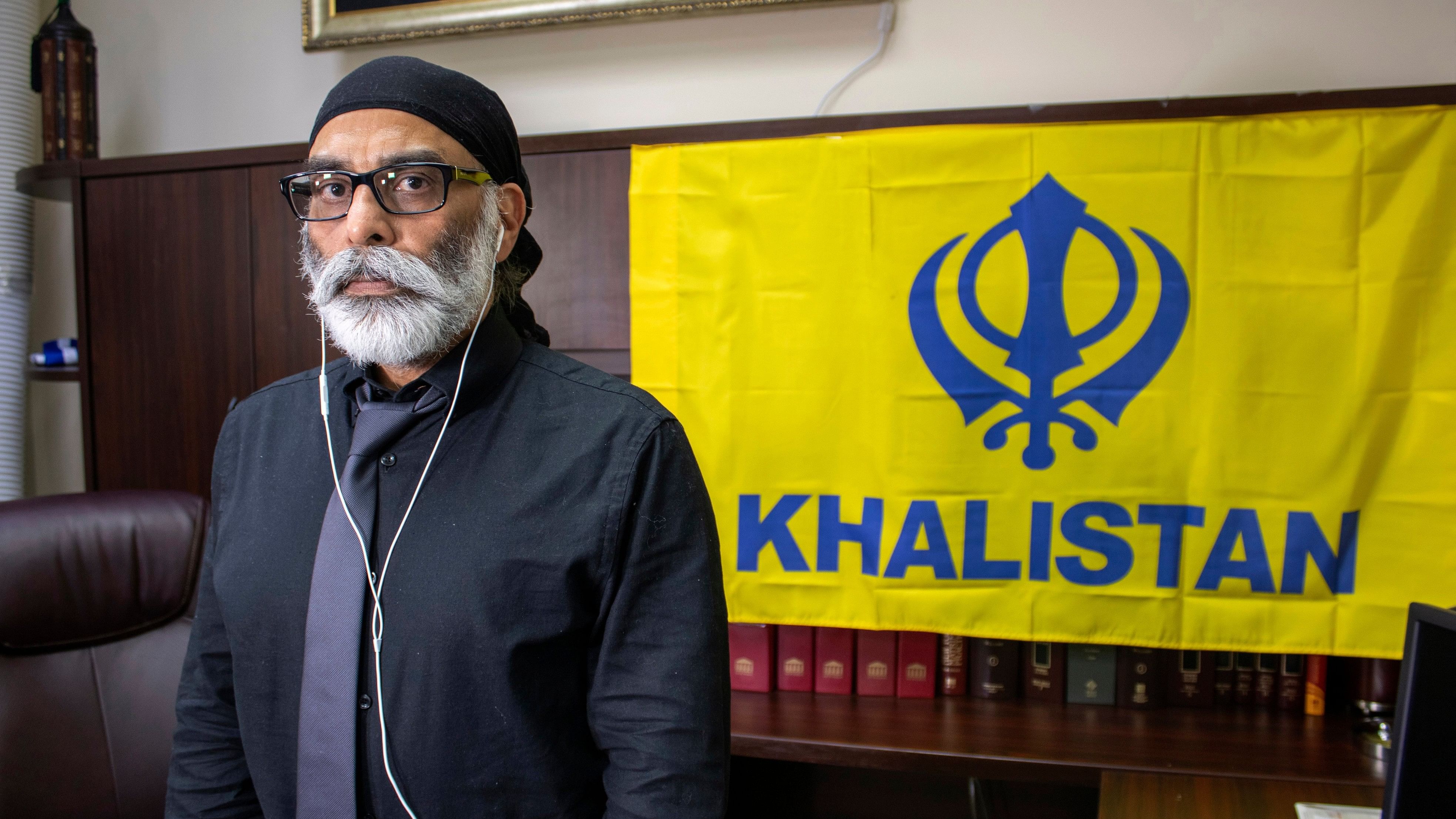
Sikh separatist leader Gurpatwant Singh Pannun.
Credit: X/@shorts_91
American Khalistani separatist Gurpatwant Singh Pannun, targeted in a foiled 'assassination plot' allegedly planned by India said that intelligence agents in New Delhi still want him dead and said that the Biden administration’s “quiet diplomacy” has failed to deter Prime Minister Narendra Modi’s government.
“The risk has increased,” Gurpatwant Singh Pannun said in an interview at his office in New York. “The Modi regime has not faced any consequences. They have not been held accountable. Why would they stop?”
The Indian government has branded him a terrorist and declared that his group Sikhs for Justice — which advocates for a Sikh nation known as Khalistan to be carved out of India’s Punjab state — is an “unlawful organization” that poses a threat to India’s sovereignty.
Pannun’s case first disrupted US-India ties late last year. That’s when the US Justice Department unsealed a superseding indictment in the Southern District of New York alleging that Nikhil Gupta, an Indian national, was recruited by an Indian government employee — known as “CC-1” — to have Pannun killed as part of a broader plan to assassinate overseas activists. At the time, Pannun’s group was organizing unofficial Khalistan referendums among Indian diaspora communities.
Gupta has plead not guilty.
India’s Ministry of External Affairs declined to respond to Pannun’s allegation that he remains a target of assassination. A ministry spokesman previously said the indictment was a “matter of concern,” that the allegations run “contrary to government policy” and that there is a “high-level committee” looking into the issue.
Months earlier in Canada, a Sikh separatist called Hardeep Singh Nijjar — a long-time associate of Pannun’s — was slain in a shooting that Prime Minister Justin Trudeau blamed on India, which rejected the accusations as “absurd.” But the US assassination plot on Pannun was foiled, according to the indictment, when an Indian national, operating under the Indian agent’s direction, inadvertently hired an undercover US agent posing as a potential hit-man.
Indian and US security agencies are in touch, and New Delhi continues to investigate the alleged murder plot, Vikram Misri, India’s foreign secretary, told reporters recently in New Delhi.
The case has been embarrassing for the Biden administration, which has continued to court Modi in an effort to counterbalance China.
“The question that this episode raises is whether we really are on the same page with this Indian government, and the extent to which an inclination to want to achieve a broader strategic end is maybe leading us to overlook the actually very transactional nature of the relationship,” said Daniel Markey, a former State Department official who’s now at the US Institute of Peace.
The case also represents a collision of geopolitical, criminal and constitutional considerations. India takes separatist movements seriously, given the militant history of the Sikh separatist movement in the 1980s and ongoing political violence in Kashmir. India blames overseas groups for fueling instability and potential violence at home.
Pannun, a former Wall Street banker turned human rights lawyer, now has five security guards to protect him and search the bags of even his close friends and associates, he said.
“I can continue to fight for the liberation of Punjab only if I stay alive,” he said. “You are doing a peaceful and democratic referendum, you are sitting at a place — and India has the resources and the proxies and the weapons and the money to kill you. You have to make sure that you survive and you continue the campaign.”
In a recent twist, Pannun filed a civil case in the US seeking restitution against senior Indian officials he alleges are responsible for the assassination attempt. Those allegations are 'unsubstantiated' and “unwarranted,” Misri, the foreign secretary, said.
In Canada, which saw India expel dozens of diplomats after Trudeau accused India, the government is holding firm on its accusation that India was behind the killing of Nijjar. “That’s the ultimate breach of our country’s sovereignty,” Foreign Minister Melanie Joly told Bloomberg in an interview on Sept. 30. “That can’t happen again.”
‘Terrorism’ Issue
“For India, the issue is that of terrorism,” said Aparna Pande, a research fellow at the Hudson Institute who put out a report pointing to ties between Khalistan groups and Pakistan, which India blames for fomenting violence in Kashmir. “India also believes that Western countries have shown tolerance towards groups and individuals deemed extremists and terrorists by the Indian government.”
Western law enforcement agencies are now attempting to balance protecting constitutional guarantees of free speech against what India views as a movement with the intent to break up the country — and that it alleges has ties to criminal gangs and smuggling. India also views Sikh protests outside its consulates and embassies as threatening.
Pannun, who was born in Amritsar, India, came to the US as a student. He made the new allegations that his life was still at risk after Sikh separatists in California had their truck “sprayed with bullets,” his group said.
That new attack is reviving concerns among US lawmakers after the original assassination plot prompted some Democratic senators to call on Secretary of State Antony Blinken to mount a strong diplomatic response “no matter the perpetrator.”
Senator Jeff Merkley, an Oregon Democrat, said it was crucial to investigate the California incident and to “send a strong message deterring potential future efforts to undermine the values of free speech and protest that we as a nation hold dear.”
Senior Biden administration officials, including White House National Security Advisor Jake Sullivan, have raised Pannun’s case with Modi’s government. Sullivan said in July that the issue “is sensitive, it is something we are working through,” but that the US effort “has been effective, in my view, mostly because it is taking place behind closed doors.”
Pannun, however, says that “quiet diplomacy” hasn’t worked “in the last 15 months” and that “it will not work in the next three years.”